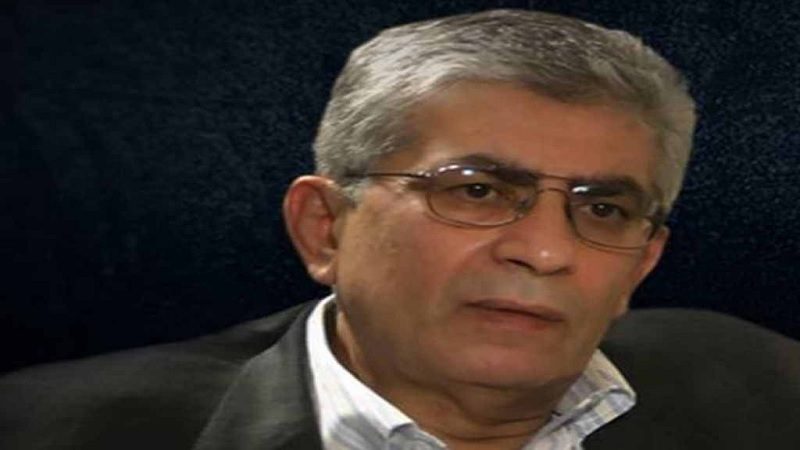
By: Dr. Basheer Mousa Nafi *
A controversy erupted again over the past few days about the reign of the Egyptian President Dr. Mohamed Morsi, and whether his (alleged) quest, and the Muslim Brotherhood’s (claimed) pursuit of adopting a policy of an autocratic rule, played a role in Morsi’s overthrow and blocking the road of the democratic transition in Egypt. The debate, this time, is related to Morsi’s rejection of a proposal from close Egyptian figures, and pressure from the German Chancellor Angela Merkel and the US President Obama, to assign Dr. Mohamed Elbaradei or Amr Moussa to form a new government as an alternative to the government of Dr. Hisham Qandil, following the end of the Constitutional Declaration crisis in November 2012 and the formation of the anti-Morsi National Salvation Front (NSF). Because both Elbaradei and Moussa were prominent NSF leaders, it seems that the proposal included an indirect call for the NSF’s participation in government. Morsi’s repeated rejection of the proposal and its accompanying external pressures is now seen as an evidence of the autocratic rule policy that President Morsi allegedly followed, and led in turn, to the exacerbation of the political conflict in the country, and then the coup of July 3, 2013.
The story which says that there is an Egyptian proposal to commission ElBaradei or Mousa to form a new cabinet, apart from the German and American pressures, goes back to Engineer Abul-Ela Madi, the chairman of al-Wasat (the Centre) Party, a narrative that is really doubtless. But there are also Egyptian political figures outside the Muslim Brotherhood members, known as being close to Morsi at the time, who made the same proposal in April 2013, and heard justifications for the President’s refusal. This is what I will return to shortly. What is important, is that the context of the events reveals that Madi was, probably, convinced of the motives of Morsi’s rejection of the proposal, because the relations between the chairman of Al-Wasat Party and the President of the Republic did not fade away during the first six months of 2013, but it was much stronger. As for the foreign pressures, it is certain that they focused on assigning ElBaradei, not Mousa, to form a government. On at least one occasion, when the new US Secretary of State, John Kerry, met with the Egyptian President in the latter’s office, on Sunday, March 3, Morsi said he did not believe that Elbaradei is appropriate for heading the government, nor did he trust his loyalty. President Morsi was not also confident of Elbaradei’s ability to withstand the pressures. Therefore, he (Morsi) would not venture to the fate of the country in exchange for temporary political gains.
President Morsi ruled the country for only one year beginning on June 30, 2012; and he ruled as a president with full powers since the overthrow of the authority of the military junta in August 2012. Morsi assigned Hisham Qandil, the Irrigation Minister in the government of Kamal el-Ganzouri – which was considered since Morsi took office as a caretaker government – to form a new government. Qandil, who took over the Ministry of Irrigation in the government of Essam Sharaf before that of el-Ganzouri, was not a Muslim Brotherhood member, and the number of ministers with a Muslim Brotherhood background did not exceed four ministers in his first government. Other parties were invited to submit their nominees for the government; some agreed and others refused. However, Qandil finally formed a largely technocratic government, as usual for the governments of the Republic, particularly since late President Sadat took office. Morsi and his Prime Minister also followed the Egyptian tradition in choosing the defense, interior and foreign ministers from within the military, the police, and the diplomatic institutions. On May 3, 2013, after Morsi’s attempts to achieve a political consensus and form a coalition government had failed (which will be mentioned later in this article), Qandil made a (limited) government reshuffle. The number of the Brotherhood ministers in the new government, which managed the affairs of the country until the July coup d’etat, did not exceed nine ministers; bringing the total of the ministers with an Islamic background to thirteen or fourteen ministers in the council of ministers which consisted of thirty-six ministers. On June 16, about two weeks before the coup, the President issued a list of the new governors (for the Egyptian provinces), which included ten governors from the Muslim Brotherhood, and two governors from two other parties, out of a total of twenty-eight governors. President Morsi had asked the parties to submit their nominees for the new provincial governors reshuffle, exactly as he had done in the cabinet reshuffle, but only two parties agreed to cooperate with the president.
A few weeks before the last cabinet reshuffle, on April 12, 2013, Dr. Ayman Nour, the prominent liberal personality and the former candidate for the presidency in the face of Hosni Mubarak, received a call from President Morsi’s office (This was mentioned by Dr. Ayman Nour to me on two separate occasions, where the two narratives did not differ except in more details on the second occasion). Nour was one of the founders of the National Salvation Front, but he left it on December 6 after it was agreed to cancel the November 2012 Constitutional Declaration, and to issue a new declaration. However, Nour maintained friendly relations with his colleagues in the NSF, including Elbaradei, Moussa, Hamdeen Sabbahi and Sayed Badawi. Nour met with President Morsi the next day, on April 13, where they talked about the country’s political situation. Nour suggested that President Morsi should assign Moussa or Elbaradei to form a new government. In fact, Morsi did not favor either of them: Elbaradei, because he (Morsi) did not trust his abilities, and Moussa, because he believed that his assignment would generate a new political storm as he was one of the old regime figures. However, Morsi took the initiative to assign Nour himself to form a new government. Nour initially objected under the pretext that the time remaining for the parliamentary elections was short, and perhaps there was no longer a need for a new government, but Morsi assured him that he would keep Nour on as a prime minister after the elections if the pro-president mass of parties won. When Nour said that his party would not be able to bear the burden of the government and that he would work to form a coalition government, President Morsi agreed immediately. However, Morsi also confirmed that he would not impose any list of ministers from the Brotherhood and that he would not interfere in Nour’s choice of ministers.
Nour started directly to contact with his former NSF colleagues, inviting them to participate in a coalition government. But, in spite of the limited and cautious responses on the first day, the news leak on the formation of a new government, during the next day, led to faltering his efforts to form the desired government. On April 15, Nour came back to the President announcing his apology for the task he entrusted to him.
In all these turns, and throughout the year of his short presidency, Morsi did not try, in any way, to appoint elements of the Muslim Brotherhood or the Islamic current in general in the state apparatus, the bureaucratic body of the state. As some of those who were close to Morsi said, he did not even have any project or intentions to do so. During the months that followed Morsi’s overthrow, some Brotherhood members or other Islamists left their positions in the state apparatus, or were dismissed, arrested, or killed, including university professors, scientists, doctors, teachers, journalists, or otherwise. But those people had occupied their positions naturally, according to the traditions of the state, not owing to the presidency of Morsi. The appointments of ministers or governors, as well as the appointments of their advisers and assistants, were all purely political appointments, like all political appointments in other democracies, nothing to do with the state apparatus and its bureaucracy.
This is not a biography of a president that sought to or desired to rule the country autocratically. The direction of such a charge, today, for this reason, or that, leads the debate on the reality of the setback that Egypt witnessed in the process of its democratic transition to a wrong direction.
The relapse in the process of the democratic transition in Egypt was caused by the short-sighted and stupid opposition leaders, especially the National Salvation Front, including politicians, intellectuals, and activists, who paved the way for the coup d’etat against the country’s elected president, and the entire democratic process.
* Basheer Nafi is a writer, a historian, and a researcher in modern history, especially the Middle East and the Islamic History.
(Published in Al-Quds Al-Arabi, on Thursday, June 16, 2016, and translated for MEO)



